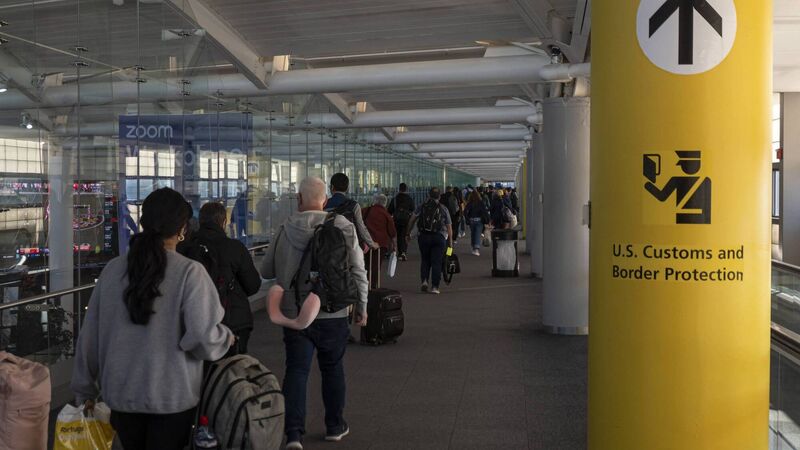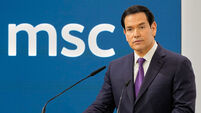Trump’s America: Irish travellers now wary of US border chaos

Travelers line up to go throught US customs and border protection in Newark Liberty International Airport, New York. Tourist numbers from places such as Europe and Canada have dropped under Trump's administration. Picture: Nicolas Economou/NurPhoto/Getty
A Welsh illustrator detained at the Canadian border, while attempting to leave the US, and held for 19 days in a detention centre in Washington state after misunderstanding the terms of her visa.













